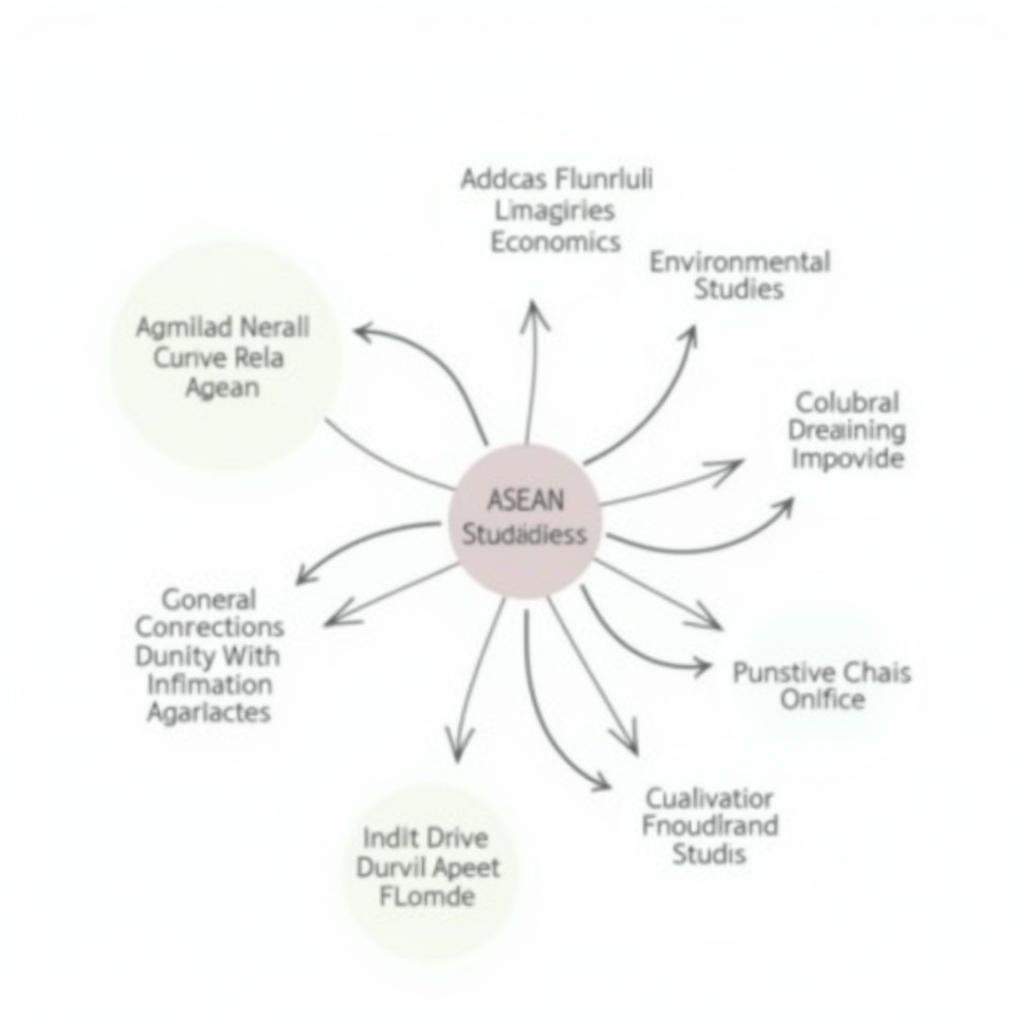ASEAN studies and theory development in the social sciences are experiencing a dynamic period of growth, driven by the region’s increasing geopolitical importance and the complex interplay of cultural, economic, and political forces within it. Understanding this evolution is crucial for academics, policymakers, and anyone seeking to engage with Southeast Asia. This article delves into the core themes, challenges, and future directions of ASEAN studies and their contribution to broader theoretical frameworks in the social sciences.
The Evolution of ASEAN Studies: From Regionalism to Global Engagement
The field of ASEAN studies has evolved significantly since its inception. Initially focused on the practical aspects of regional cooperation and integration, the field has broadened to encompass a wide array of disciplines, including political science, economics, sociology, anthropology, and history. Early scholarship concentrated on the institutional development of ASEAN, analyzing its effectiveness in promoting peace and security, and fostering economic growth. However, with the rise of globalization and the increasing interconnectedness of Southeast Asian nations with the rest of the world, ASEAN studies have become more nuanced and sophisticated.
Key Themes in Contemporary ASEAN Studies
Several key themes dominate contemporary ASEAN studies. These include:
- The impact of globalization on ASEAN economies and societies.
- The role of ASEAN in managing regional security challenges, such as territorial disputes and transnational crime.
- The interplay between national identities and regional integration.
- The evolving relationship between ASEAN and major powers like China, the United States, and Japan.
- The challenges of democratization and human rights within ASEAN member states.
Theory Development and ASEAN: A Two-Way Street
ASEAN studies not only draw upon existing social science theories but also contribute to their development. The unique context of Southeast Asia offers a fertile ground for testing and refining existing theoretical frameworks, particularly in areas such as regionalism, international relations, and development studies. For example, the concept of “ASEAN centrality” challenges traditional notions of power and influence in international relations, highlighting the importance of regional institutions in shaping global governance.
Bridging the Gap Between Theory and Practice
One of the key challenges in ASEAN studies is bridging the gap between theory and practice. While theoretical frameworks can provide valuable insights into the dynamics of the region, they must be grounded in empirical research and informed by the lived experiences of people in Southeast Asia. This requires researchers to engage with local communities, policymakers, and civil society organizations.
 ASEAN Community Building Through Dialogue
ASEAN Community Building Through Dialogue
The Future of ASEAN Studies: Embracing Interdisciplinarity and Innovation
The future of ASEAN studies lies in embracing interdisciplinarity and innovation. As the region continues to evolve, new challenges and opportunities will emerge, requiring researchers to adopt new methodologies and theoretical perspectives. This includes exploring the potential of digital technologies to enhance research and collaboration, as well as engaging with emerging fields such as environmental studies and public health.
What are the main research areas in ASEAN studies?
Research areas in ASEAN studies are diverse, encompassing political dynamics, economic integration, socio-cultural transformations, environmental issues, and security challenges.
How does ASEAN contribute to theory building in social sciences?
ASEAN’s unique context provides a testing ground for established theories and fosters new conceptualizations related to regionalism, international relations, and development.
 Future Directions of ASEAN Studies: An Interdisciplinary Approach
Future Directions of ASEAN Studies: An Interdisciplinary Approach
Conclusion
ASEAN studies and theory development in the social sciences are intertwined, offering valuable insights into the dynamics of a rapidly changing region. By embracing interdisciplinary approaches and engaging with diverse stakeholders, ASEAN studies can continue to contribute to our understanding of Southeast Asia and its place in the world. The continued development of robust theoretical frameworks will be crucial for navigating the complexities of the region and informing policy decisions that promote sustainable development, peace, and prosperity.
FAQ
- What is the significance of ASEAN studies?
- How can I pursue a career in ASEAN studies?
- What are the main challenges facing ASEAN today?
- What are some key resources for researching ASEAN?
- How does ASEAN promote regional cooperation?
- What is the role of civil society in ASEAN?
- How does ASEAN address issues of human rights?
If you need any assistance, please contact us at Phone Number: 0369020373, Email: aseanmediadirectory@gmail.com or visit our address: Thon Ngoc Lien, Hiep Hoa, Bac Giang, Vietnam. We have a 24/7 customer service team.
